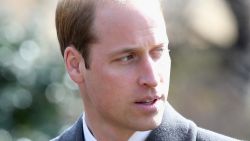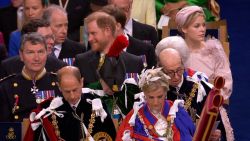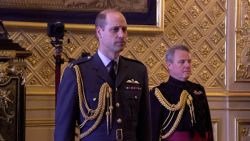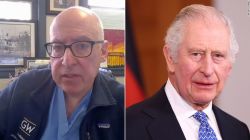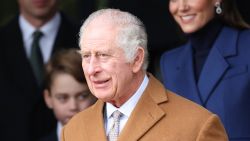The death of Queen Elizabeth has come at a bad time for the United Kingdom. Against a backdrop of soaring inflation, a slumping currency and the worst cost-of-living crisis in decades, the country has lost one of its few markers of continuity and stability.
The government of Prime Minister Liz Truss, who on Thursday unveiled a huge gamble to rescue the economy just two days into the job and a few hours before the Queen died, has declared a period of national mourning that will last until the day of the state funeral.
Some shops and sporting venues were closed as a mark of respect, but for much of the country, business continued as usual.
London’s financial markets opened on Friday, with stocks gaining ground in line with other markets in Europe and Asia. The London Stock Exchange said it expected trading to continue during the period of mourning. It will close only for the funeral, the date of which has not yet been announced but is likely to be a public holiday.
One of the oldest department stores, Selfridges, closed its outlets in London, Manchester and Birmingham, but said they would reopen on Saturday.
Meanwhile, labor unions offered some respite from a recent wave of industrial action. The Communication Workers Union called off a strike involving 115,000 Royal Mail postal workers planned for Friday. Transport unions also canceled stoppages organized for next week and later this month on the railways.
And while the British Academy of Film and Television Arts canceled its annual pre-Emmy event scheduled for this weekend, London’s West End theaters were open.
Holger Schmieding, chief economist at Berenberg, a private bank, told CNN Business that he expects the economic impact of the Queen’s death to be “minor.”
“Calling off the disruptive rail strikes for now should partly offset the impact from the days of mourning. Additional tourist revenues will probably contribute to that,” he said.
Economic rescue disrupted?
News of the monarch’s death came just hours after Truss announced plans to cap Britons’ energy bills from October, providing relief to millions of households and thousands of businesses struggling to cope with soaring prices.
But the rescue package could cost as much as £150 billion ($172 billion), according to analysts at Berenberg, and be largely funded by government borrowing. Finance minister Kwasi Kwarteng is due to confirm the plan’s price tag later this month.
Yet much of the government’s attention could now turn to the events of the next few days as it prepares for the Queen’s funeral and the coronation of her successor, King Charles. Normal business in parliament has also been suspended for the next several days.
“It’s likely the impending emergency budget will be delayed,” Danni Hewson, an analyst at investment firm AJ Bell, told CNN Business.
How the Bank of England responds to the enormous increase in government borrowing is also crucial. Investors are already nervous about the state of UK government finances, and the bank had been scheduled to meet Thursday, where it was expected to jack up interest rates again.
But on Friday, the Bank of England announced it would postpone its interest rate decision by one week “in light of the period of national mourning.” It will now meet on September 22.
The UK Treasury did not immediately respond to CNN Business for comment. Truss’ official spokesperson told reporters that the energy price cap would be in place as planned on October 1 despite the period of mourning.
The pound traded higher on Friday at $1.16, recovering from 37-year lows hit earlier in the week, but the longer term decline in its value seen since the global financial crisis was likely to continue “until there’s a seismic change in the direction of the economy and economic policy,” Kit Juckes, macro strategist at Société Générale, said in a Friday note.
“There’s a strong chance that King Charles III will be the first British monarch to pay more than a pound for a dollar, or more than a pound for a euro, or both,” he added, saying it was unlikely the pound would drop below parity with the dollar this year.
As for UK banknotes, which feature the portrait of the Queen, they “continue to be legal tender,” the Bank of England said, adding it would announce plans to print new cash with a portrait of King Charles after the period of mourning ends.
— Rob North, Sandra Gonzalez, Max Foster, David Wilkinson, Luke McGee and Morgan Povey contributed reporting.






